Avro Aircraft Factory, Leeds – The Story of Yeadon’s Hidden War Effort
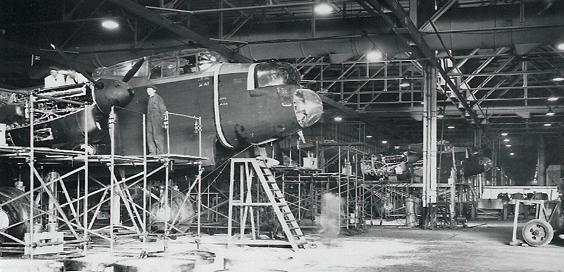
A Hidden Aeroplane Factory During World War II
by Colin Philpott
Today it is an anonymous looking industrial estate alongside Leeds-Bradford Airport. Between 1939 and 1946 it was an industrial production centre contributing to the war effort on a gargantuan scale.
Leeds and Bradford Municipal Aerodrome had opened in October 1931. Regular flights linked it with London and Newcastle. When war broke out in 1939, Avro built a ‘shadow factory’ alongside the aerodrome to contribute to the aircraft production needed for the war effort.
The factory covered a million and a half square feet in area. It was the largest single factory unit in Europe. It was one of a number of shadow factories built around the country for wartime aircraft production. Its size and significance meant that it was at high risk of being a target for enemy bombers.
“Large workforce”
An elaborate camouflaging operation took place, masterminded by people who had previously worked in the film industry. The camouflage consisted of grass covering the roof of the factory, replicating the original field pattern. There were imitation farm buildings, stone walls and a duck pond in the area around the factory. Hedges and bushes made out of fabric were changed to match the changing colours of the seasons. Personnel moved dummy animals around daily to increase the camouflage. It worked because enemy bombers never detected the factory. It remained untouched throughout the war.
At the height of its operation, more than 17,500 people, mostly conscripts, worked there. The factory was an assembly plant that was in production 24 hours a day. Workers bussed in from all over West Yorkshire and worked 69-hours a week on a three days, followed by three nights basis. Extra homes built in the surrounding towns accommodated the large workforce. Gracie Fields visited the factory to entertain the workers. More than 5,000 at a time crammed into the works canteen for concerts.
“Camouflage”
Throughout the course of the war, Avro Yeadon produced almost 700 Lancaster bombers, 4,500 Ansons and several other types of aircraft. Service men built a taxiway from the factory to the aerodrome. The taxiway extended so that it could become a test centre for military flights.
The airfield resumed civilian flights in 1947 and subsequently developed into Leeds-Bradford International Airport. The Avro factory closed in 1946 but the site is now the Leeds-Bradford Airport Industrial Estate. The estate’s main building is the same one, albeit modified and without the camouflage, that housed the aircraft factory during the war. The remains of the taxiway from the factory to the main airfield are still visible.
“War effort”
There was also a Royal Ordnance Corps site opposite the Avro factory. Some remains of that can be seen in what is now a secure parking area and caravan park. A plaque commemorating the role of Avro Yeadon is displayed inside the airport’s terminal building. It is still remarkable to imagine, as you drive along the A658 past the industrial estate, that this was once a secret factory that contributed so much to Britain’s war effort.
 A Place in History: Britain’s headline news stories remembered by Colin Philpott.
A Place in History: Britain’s headline news stories remembered by Colin Philpott.
Published by Ammonite and available now from amazon.co.uk
Top image © Press Association
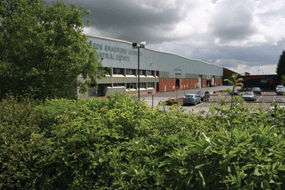
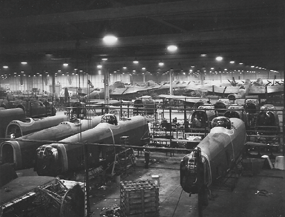
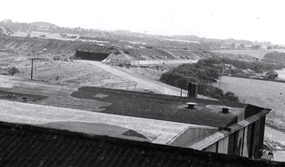


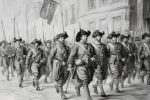
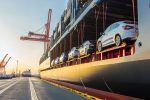




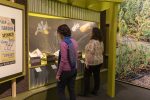
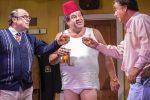
M
I was born IImn a wartime built bungalow at the side of the Avro factory My dad was a tool setter there He was an engineer before the war and initially joined the Royal Navy where he wired on early radar with Dr Watson Watt He wS transfers to work on the Avro Lancaster project at YeadonHe stayed there untill peace was declared His name was Merlin Hudson
My mum Nora Hemingway was a riveter. She and her best friend worked together. One worked inside of the metal plate and the other riveted outside of the metal plate. When the War ended, the women had to train the men who came back from the War. Most of the women had to leave. My mum was asked if she would stay and work in the offices. She came to stay with us for a while. We took her to Duxford in Cambridge, not saying where we were going. When she saw it her face had a big smile when she saw the plane.
My father Norman Tyler worked at this factory and I remember him going to reunions in Appletreewick instead 1950s
My Father was at Avro he was sent from Chadderton site and was in experimentals. My mother worked in the office ,he was her boss they married in Rawdon about 1942 there 1st house was in Haw Lane Yeadon still have a couple of photos from that time at the factory
My mother Mary Hutchinson worked there being bussed in from Hartshead Moor every day. She helped installed the pilots seats and assembled some of the instruments from kits given to them from the stores.
My friend Graham Austin’s mother also worked there in the stores and he told me that she didn’t know left from right so there were probably any number of parts issued to the assembly workers that had to be exchanged once the error had been discovered.
My mum. Bessie Tordoff and dad Richard (Dick) Braithwaite both worked at the AVRO. Mum was in inspection and dad manned the guns that defended the premises. He had the easiest time because they were never found by the Germans. He was deaf but had extremely good eyesight.
My father, Walter Ronald Stead, worked at the Avro factory during the war. He was an Industrial Chemist by occupation which seems to have been a reserved occupation. I am trying to trace some history of his life in this period.
My mother Claire Burton at the time worked in the Avro factory at Yeadon she immigrated to New Zealand in 1947.As children we heard many stories about the building of Lancaster bombers but not so many about the hard times they endured. Mum was a tool setter which required a fair bit of engineering ability. My father was a mechanical engineer and often as a inquisitive child I would ask an engineering related question my father’s response was quite often “ask your mother” who I might add often had the answer.
How true is it the the Dam Buster planes were built at Yeadon?
My mom worked on the Lancaster’s in Leeds along with her dad . Her name was Gladys Groves and they lived in Robin Hoods Bay They rented rooms but went home week ends
I was born in 1941 so I remember some of what as been written my Aunt work munitions in Leeds and had to walk from horsforth as buses weren’t allowed to come any farther j
My uncles Stanley and Eddie (knight) worked at AVRO. My auntie Pat (knight) was a wages clerk. My grandad – Bill (william) Knight worked there – he was the company Choir master. I wonder if anyone remembers their relatives being in the choir?
I was born in 1944 in Bradford as my parents had moved from Hull due to my father Norman Grasham being put into a reserved occupation building Lancasters at Yeadon. He was a smoker and one day in 1943 he accidentally strayed into the no smoking zone and he was subsequently fined £20 to be paid at £1 per week this was a lot of money in those days.
My mother Ada Burkitt and my aunt Emily Burkitt worked at the factory – mother during the day, aunt at night so that we were not left at home alone. We lived in a “bungalow” which was on an estate which I thought was built specially for the workers at Guisely. I am researching my aunt’s history and have wondered if this is where she met her husband Joe Richardson?
My mother Edna Harrison (nee Carr) worked as an Oxy-Acetylene welder at Avro. She worked 28 nights on and one night off and she usually slept right through her day off and then went back to work. She said she was one of less than 10 women who worked nights at the factory. She enjoyed her time there despite the very long hours.
Hi Pauline my mother worked at the Avro factory her maiden name was Carr she worked there with her sisters all from Liverpool , we used to be taken there in the early fiftys blue bell woods and a outside swimming pool that was so cold nobody dare go in, mothers name was Jean Carr. William Carroll
My mum, Joan Deighton (nee Quinlan) lived in Harrogate and during the war worked at Avro in Yeadon. She told us that she worked on assembly of the rear turret on Lancaster bombers, and a few stories about what it was like to work there and the great fun and camaraderie. Wish that I had asked her more
My father was at avro Yeadon in war and beyond,then hawkers,blackpool,then English electric warton
Found this site after trying to find out if any recognition was given to the women who built the planes in ww2. My mother Iris worked as a Riveter on Lancaster Bombers at the Avro Yeadon for most of the war. She has now died and always said that it wasn’t fair that other war work was recognised but not for those building the planes. She told us of having to work to work from Headingley to Yeadon Airport during the winters when the buses couldn’t get through.
After reading the history I am amazed that she never said how big the factory site was. I lived in Leeds and can remember seeing the buildings having grass on them, although no animals.
Was there any recognition for the women who work in aircraft manufacturing during WW2?
My mother (Audrey Hawkins) lived in Guiseley and as a member of the ATS worked at the Avro factory. Due to being adopted ( another story) and my mother being emigrated by and with her parents to Canada it would be good to be able to send this info to her children. So,yes,I have a brother and four sisters ( only recently discovered) in Canada ( the only other country to have a flying Lancaster) and it would be good to share with them this history. Is it available from whoever wrote it? If so how do I go about obtaining a copy? Ian Ibbotson ( was John Hawkins)
My mother Mrs Irene Atkinson worked on bombers at avroe in the Yeadon factory she did her bit while my father Sgt Samuel Atkinson fought his way through Italy .She had me to look after as a baby and what do you know ,no free child care,isnt that odd.R Atkinson Mr aged 74 .
I too wonder about employment records as my father William (Bill) Wright, who was employed by Rotol Airscrews Gloucester from 1939, used to leave home to go to Yeadon and come home every 3rd weekend. He must have been working at this factory because he used to work on aircraft engines and propellors. Rotol later became Dowty-Rotol and in 1946 he was sent to India I understand to train Indian Airforce apprentices to repair their aircraft propellors and engined. There must be Archives somewhere. My father never spoke about the factory so perhaps it was secret?
Hi All
My father, Victor Barnett of Leeds worked at the Afro Aircraft factory throughout the war years too.
He was a specialist wood worker/designer, I suppose he also had great carpentry skills as well.
I wonder if there is an organisation where I can access employment records and the historical details of those turbulent war years at the factory?
Regards to all
Merv Barnett
Melbourne Australia
My Grandad was an engineer at the factory
my name is george mills and my farther was samuel mills (sam) was an aero engineer specialist and the chief fire officer. i am looking for anyone with any details on the work or the person as he is my farther and i would like some enclosure as he didn’t revel anything to me.
MY MOTHER WINIFRED ELLIS WORKED AT AVRO MAKING LANCASTER BOMBERS DURING THE WAR. SHE TOLD ME SHE WAS A JOINER. I TOO WISHED I HAD ASKED HER LOTS MORE ABOUT THE FACTORY.
Our next-door neighbour in Wyke, near Bradford, during WW2 was a young engineer called Geoff Clough who worked in the Avro factory at Yeadon and used to bring home small Perspex artefacts which he had made at work, presumably using off-cuts from the windows of Ansons or Lancasters.
Thnxs this helped so much with my progect on ww2 and lancasters;)
My mum worked in the DOPE SHOP Phil. I wish I’d asked her more about it.
Both my parents and my aunt used to work there.dad fitted bomb sights, mum was in the “Dope Shop” Covering the rivet heads with tape and then painting on the cellulose adhesive or Dope with a Brush To seal down the tape and smooth out the rivet heads.
I think the reference to the royal ordnance corps is meant to be the Royal Observer Corps. This was ROC 18 regional command centre,which ceased operations in 1968.
I now have the privilege to work in the old avro building at Yeadon and it’s amazing to think that one of the most iconic British planes was built there. The main entrance and marble stairways are still there and the wooden paneling and light fittings still in immaculate condition. Such an amazing place to work and just to even walk round the site is a good feeling
Oh I would LOVE to see it as my mum used to tell us about it. I often wondered if there were still items down there from WW2. It must be like stepping back in time.
My friend peggy Welford worked in draughtsman office
My mum worked here during the WW1. She told me how she had to spray the planes with ‘dope’ and how she had to work 3 days a week and that some days she was so tired that she never took her clothes off or slept as she had two small children to look after. A young girl used to come down from Scotland and fly the small planes beck up there….they must have only been late teens or early twenties…….makes you think, doesn’t it.
I meant to type WW2 not WW1
I am a Yorkshire Lass who has lived in the USA since I was 9. I have listened to my Mom tell many stories of working at Avro Yeadon during the war. I had the opportunity to go aboard a Lancater Bomber in Florida as war planes were making their visits to different airports to help raise money to keep them flying and preserve them. She saw the name plate and said she may have help built this one! Great article. Where can I get a copy?
I have been reading my grandmother’s journal from many years ago. She referenced that she worked here as a welder during WW2. Amazing to Google her writings and find a visual of where she actually worked.
Another great article about @colinpmedia ‘s A Place in History: http://t.co/C41yvGeZ
#YORKSHIRE HISTORY: AVRO AIRCRAFT FACTORY, Leeds – a hidden WW2 aeroplane factory… http://t.co/08jgwvha @colinpmedia @AmmonitePress #leeds